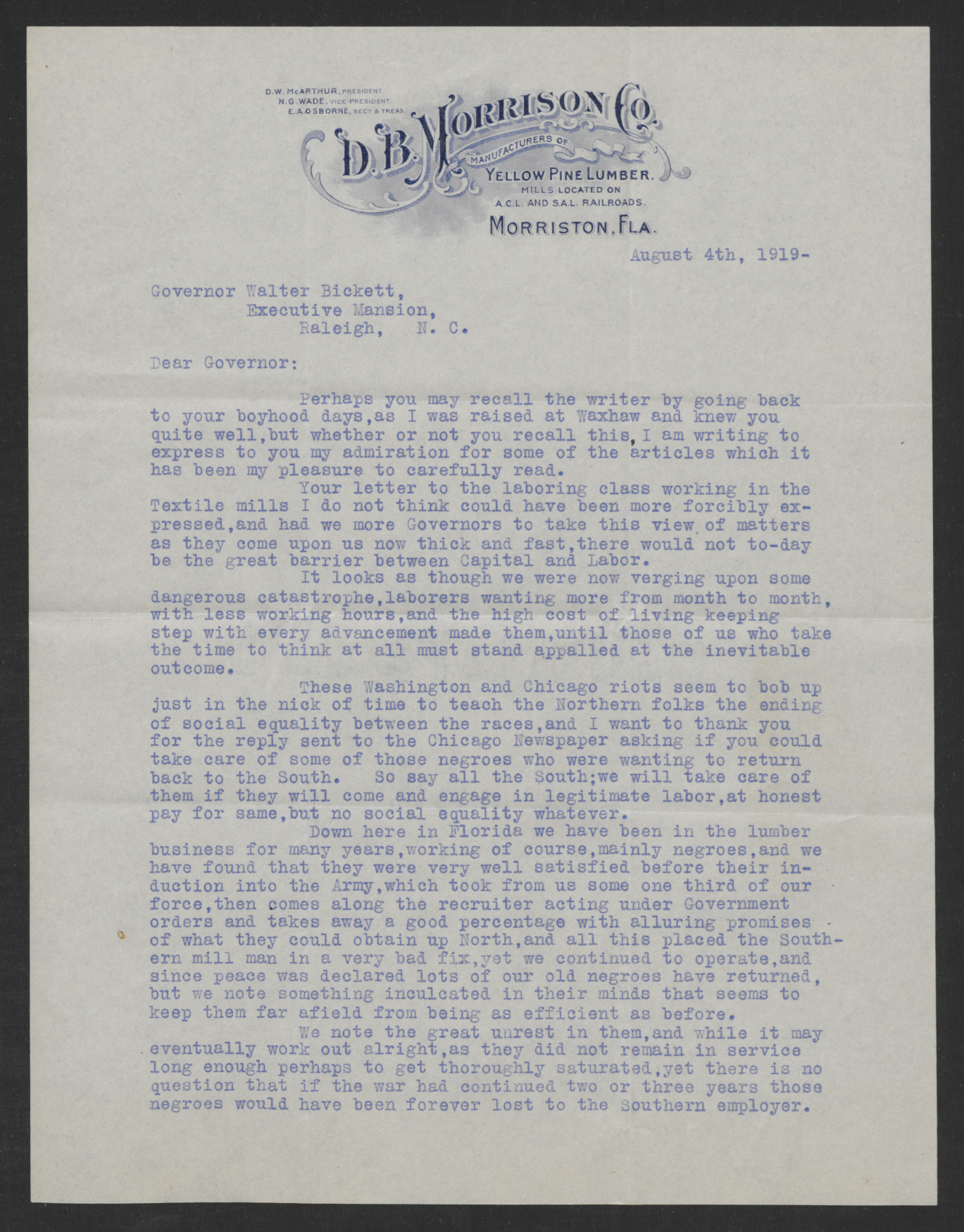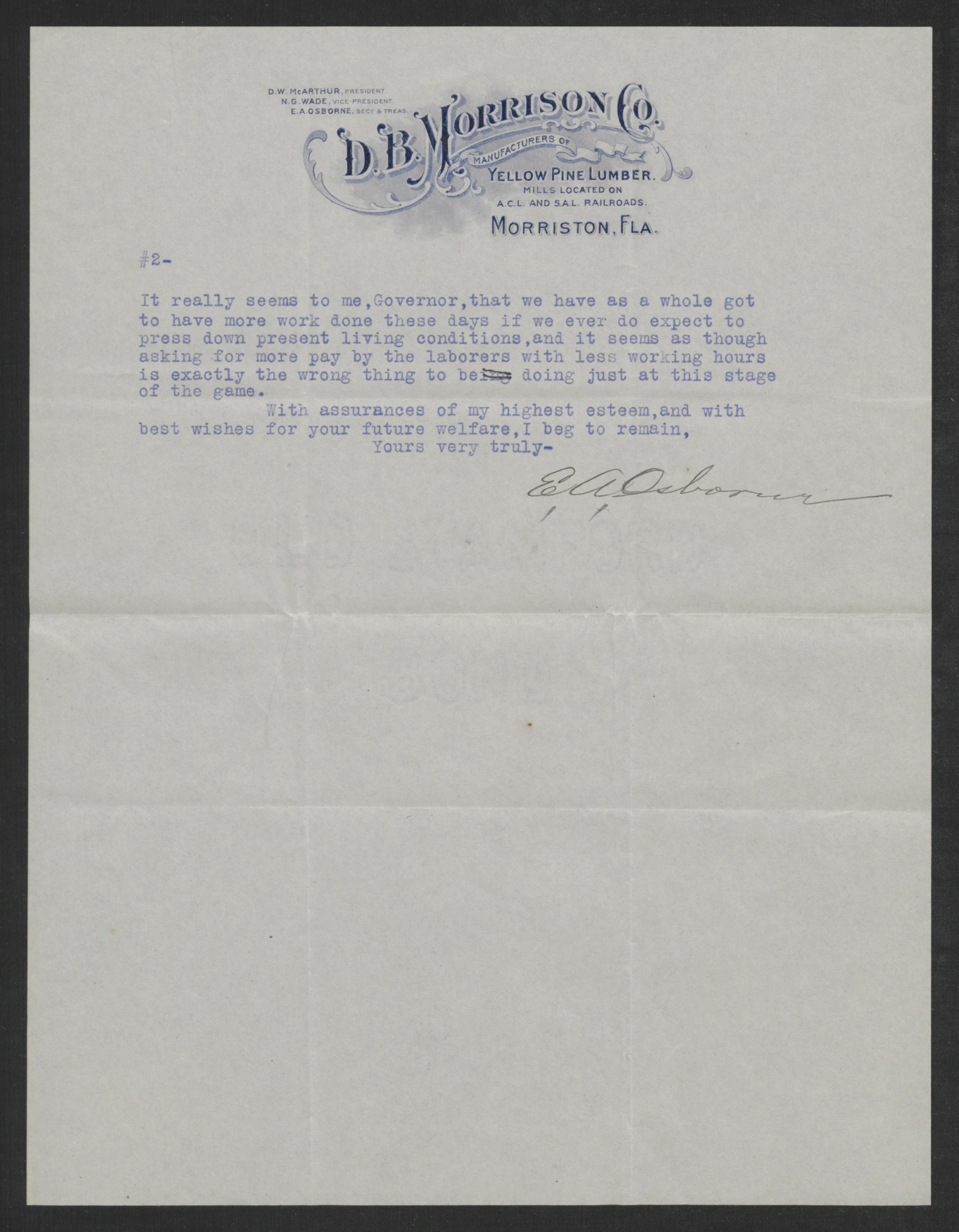D. B. MORRISON CO.
MANUFACTURERS OF
YELLOW PINE LUMBER.
MILLS LOCATED ON
A. C. L. AND S. A. L. RAILROADS.
MORRISTON, FLA.
August 4th, 1919-
Governor Walter Bickett,
Executive Mansion,
Raleigh, N.C.
Dear Governor:
Perhaps you may recall the writer by going back to your boyhood days, as I was raised at Waxhaw and knew you quite well, but whether or not you recall this, I am writing to express to you my admiration for some of the articles which it has been my pleasure to carefully read.
Your letter to the laboring class working in the Textile mills I do not think could have been more forcibly expressed, and had we more Governors to take this view of matters as they come upon us now thick and fast, there would not to-day be the great barrier between Capital and Labor.
It looks as though we were now verging upon some dangerous catastrophe, laborers wanting more from month to month, with less working hours, and the high cost of living keeping step with every advancement made them, until those of us who take the time to think at all must stand appalled at the inevitable outcome.
These Washington and Chicago riots seem to bob up just in the nick of time to teach the Northern folks the ending of social equality between the races, and I want to thank you for the reply sent to the Chicago Newspaper asking if you could take care of some of those negroes who were wanting to return back to the South. So say all the South; we will take care of them if they will come and engage in legitimate labor, at honest pay for same, but no social equality whatever.
Down here in Florida we have been in the lumber business for many years, working of course, mainly negroes, and we have found that they were very well satisfied before their induction into the Army, which took from us some one third of our force, then comes along the recruiter acting under Government orders and takes away a good percentage with alluring promises of what they could obtain up North, and all this placed the Southern mill man in a very bad fix, yet we continued to operate, and since peace was declared lots of our old negroes have returned, but we note something inculcated in their minds that seems to keep them far afield from being as efficient as before.
We note the great unrest in them, and while it may eventually work out alright, as they did not remain in service long enough perhaps to get thoroughly saturated, yet there is no question that if the war had continued two or three years those negroes would have been forever lost to the Southern employer. It really seems to me, Governor, that we have as a whole got to have more work done these days if we ever do expect to press down present living conditions, and it seems as though asking for more pay by the laborers with less working hours is exactly the wrong thing to be doing just at this stage of the game.
With assurances of my highest esteem, and with best wishes for your future welfare, I beg to remain,
Yours very truly-



